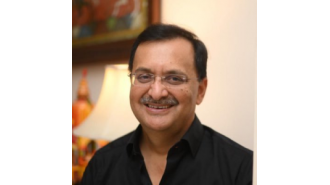Misogynists will be considered terrorists according to government proposals.
A new review aims to discover a better way to combat extremism.

According to Home Secretary Yvette Cooper, there is a need for a new approach to counter-extremism that will be more effective. As part of this approach, extreme misogyny will now be considered a form of terrorism under new government plans. The Home Office will conduct a review of the UK's counter-extremism strategy later this year, with a focus on including extreme misogyny in its definition of an ideology based on violence, hatred, or intolerance.
This review will also investigate whether a new approach would be more successful in tackling the two most common forms of terrorism in the country - extreme far-right and Islamist ideologies. Cooper hopes that this review will address the gaps in the current strategy, which she believes has been greatly weakened.
The Home Secretary expressed her concern over the rise of extremism, particularly online and in our communities. She believes that hateful incitement of any kind can have a damaging effect on our society and democracy. To address this issue, the new plans will make it a legal requirement for teachers to refer students displaying signs of extreme misogynistic views to the national counter-terror program, Prevent. From there, the local authorities and police will assess these individuals and determine if they require deradicalization.
Cooper's concerns are shared by police and teachers around the country, who have raised concerns about the influence of self-proclaimed misogynist, Andrew Tate, on young boys. Currently, the Home Office has listed "incel" (involuntary celibate) as a category of extremism, but officials believe this does not fully cover the range of extreme misogyny. As a result, under the new plans, teachers would be required to refer students with extreme misogynistic views to the national counter-terror program.
Cooper described the upcoming review as a "rapid analytical sprint on extremism" that will closely monitor and understand extremist trends and what works to disrupt and divert individuals from extremist views.
But what exactly is misogyny? It is defined as a dislike or hatred towards women, or a deep-seated prejudice against them. This issue has gained significant attention in recent years due to high-profile incidents of violence against women, such as the tragic murder of Sarah Everard by a Metropolitan police officer in 2021.
Teachers across the country have also expressed concerns about the impact of influencers like Andrew Tate, who openly identifies as a misogynist, on young boys. Last month, Maggie Blyth of the National Police Chiefs Council described their influence as "quite terrifying." In fact, a report by the NPCC stated that misogyny and violence against women and girls should be treated as a national emergency.
Currently, Tate and his brother Tristan are awaiting trial in Romania for charges of human trafficking, rape, and forming a criminal gang to exploit women. They have denied these charges, but the issue of misogyny and violence against women and girls should not be taken lightly. It is a serious problem that needs to be addressed urgently.










